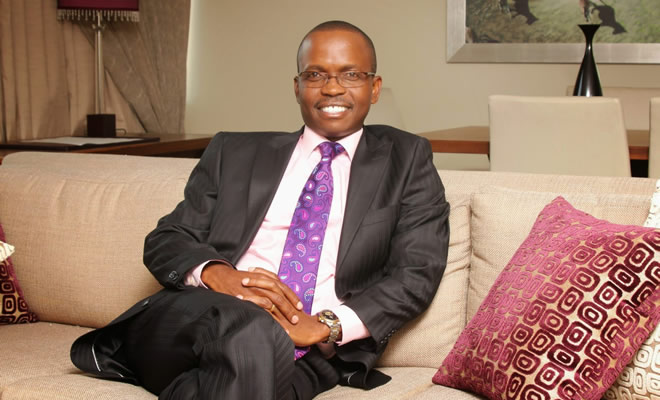By John Kachembere
Standing at approximately 1,5 metres Shingi Munyeza is by any standards a short man. But he is one of the few businesspeople in Zimbabwe with the guts to tell the government to implement strong economic reforms and end the present economic and political crisis.

For the past four years, the country has been forced — four times — to slash by half its economic growth targets, signifying a deep-rooted crisis, but industry has remained quiet without proffering any solutions to the Zanu PF-led government.
Since President Robert Mugabe’s controversial re-election in 2013, deflation has taken root as consumer demand shrinks and the economy struggles with a shortage of dollars.
Once bustling factories in Harare and other major cities and towns are now rusty shells, as companies struggle to shake off effects of the 1999-2008 economic downturn that cut gross domestic product by about half.
Listed and non-listed firms have seen their capitalisation and value declining by more than half since 2013.
In addition, the mines are reeling from the fall in commodity prices and a drought has left 16 percent of the population needing food aid. Formal unemployment stands at more than 80 percent and power shortages are getting worse.
As such, it was refreshing when Munyeza recently spoke his mind about the state of the economy and also offered advice to government with his 10-point plan.
Munyeza might have been rallying his Ocean Basket and Mugg & Bean cause when he presented his statement about the chaotic state of the economy and highlighted areas that need urgent attention.
The businessman advised government to cut its bloated wage bill and reduce expenditure, commercialise some of the State-owned enterprises, move into the Rand Union and revisit the disastrous indigenisation laws. He also expressed his reservations on the introduction of bond notes and the ongoing land grabs among other issues.
The former African Sun chief executive is worthy listening to, not only because he did the right thing by handing over the sprawling hospitality firm to new blood but he also had the wisdom to understand that you don’t cling to a corporation forever.
This compares sharply to Mugabe, in power since independence in 1980, and his government — still entangled with the euphoria of “defeating the Imperialist Britain” — has failed to come up with meaningful reforms to tackle the present economic crisis.
To show its desperation, the Zanu PF government organised a one-million-man-march in support of the nonagenarian leader who has presided over the country’s economic collapse pushing over 3 million of our best brains into the Diaspora.
For the past 36 years, Zanu PF has done a sterling job in ensuring that the once “jewel of Africa” is now a basket case, with hundreds of thousands of graduates roaming the streets while the health and social systems have irretrievably broken down.
Fed up with the government’s command economics that is increasingly wiping out companies bottom-lines, Dairibord Holdings chief executive Anthony Mandiwanza last week called for urgent bold reforms to stop the industrial carnage.
“The business environment is more excruciating than what we had anticipated even as we did our budget in November-December last year,” the long-serving and respected executive said.
“I don’t know if many of us here would have thought we would be talking about bond notes reminding us about the times of the Zim kwacha (Zimbabwean dollar) and yet it has such a profound impact on the business; so really I am repeating the business environment is excruciating and companies are in trouble,” he said.
“In terms of our outlook, we repeat there are heavy headwinds ahead. In fact, we are in a storm. We are already in a storm and we don’t see the situation relenting indeed up to end of June,” Mandiwanza added.
What is sad about all this is the conspicuous silence from the Zimbabwe National Chamber of Commerce, the Bankers Association of Zimbabwe and the Confederation of Zimbabwe Industries on matters affecting their operations.
The industry mother bodies have remained mum on corruption, economy mismanagement, chaotic land reform and indigenisation among other catastrophic policies.
It becomes very difficult for one not to miss the good old days when men and women of valour such as Luxon Zembe, Isaac Takawira, Marah Hativagone, Jonee Blanchfield and Callisto Jokonya represented “The Voice of Business” calling a spade by its name.
Perhaps what we have today are politicians masquerading as “businessmen” and are very comfortable molly-coddling with this predatory regime, which is sucking blood from legitimate businesses. Daily News






